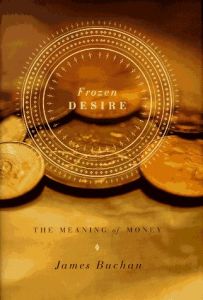Join getAbstract to access the summary!

Join getAbstract to access the summary!
James Buchan
Frozen Desire
The Meaning of Money
FSG, 1997
What's inside?
Our hunger for money has no limit, but it does have reasons. Just ask Robinson Crusoe.
Recommendation
James Buchan has written an enthralling book about the history and impact of money. He treats money as an evolving concept from early Greek writings to symbolic references in art. He considers the ability of money to speak for human desire, including its role in the primary needs to wage war and to make love. The book’s style shifts from detailed historical review to literary criticism, so it is not always an easy read, but it is always fascinating. getAbstract recommends this book to executives who want to learn more about money’s intrinsic power. Read it to learn how money shapes your world in ways you may not have considered.
Summary
About the Author
James Buchan’s other books include The Golden Plough (1995), which won The Guardian Fiction Prize, and High Latitudes (1996). James Buchan is a former correspondent for The Financial Times. He lives in London.



















Comment on this summary